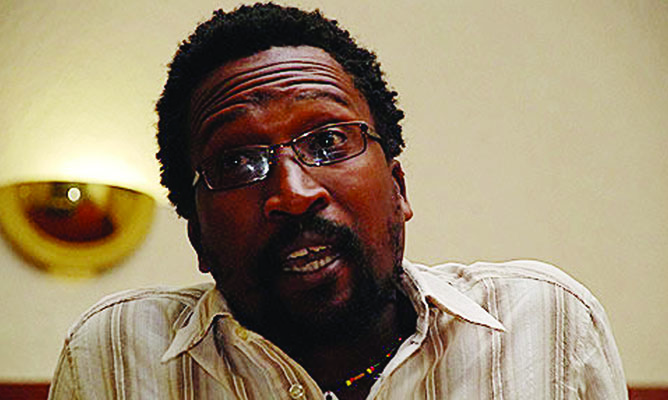
UNIVERSITY of Zimbabwe vice-chancellor, Levi Nyagura was recently suspended from office by President-elect Emmerson Mnangagwa.
Guest column: Takura Zhangazha
According to a Press statement by the Minister of Higher and Tertiary Education, Science and Technology Development, Amon Murwira, the suspension is pending the finalisation of criminal charges laid against Nyagura. These charges relate to allegations of corruptly awarding a doctor of philosophy (PhD) degree to former First lady Grace Mugabe in 2014. (His suspension is however with full benefits.)
This is both a political and emblematic move on the part of Zimbabwe’s government. Political because in the first place the government did not like Nyagura’s close association with the former First Family.
Emblematic because the ‘new dispensation’ leaders do not want to be seen to be condoning or turning a blind eye to what is a widely popular alleged corruption case, even if some of their associates were awarded PhDs or masters degrees during Nyagura’s tenure.
For many a former and current student leader, especially those associated with the Zimbabwe National Students Union (Zinasu), Nyagura’s suspension would be sweet to the ear, not because they have personal grudges, but more because of what he represented via his executive authority over not only academic and non-academic staff but more significantly over thousands of yesteryear and contemporary University of Zimbabwe students.
As a former student leader at the university, I also received the news of Nyagura’s suspension from a very personal point of view, and in full knowledge of the fact that it is, after all, only a suspension pending a court of law’s determination as well as Nyagura’s own career options. But either way, the announcement was a throwback and reflective moment to what Nyagura represented within the university community and also to the country. Whether as the then (during my years at UZ) pro-vice-chancellor of the university or acting on behalf of then vice-chancellor Professor Graham Hill (who was not any better, but never got suspended).
I recalled the time he would bang the table in the university council or senate meeting room in umbrage at student leaders for raising valid concerns about students welfare (payouts, semester system) or their right to demonstrate or associate. Or his erratic behaviour during meetings in his office when he would be trying to arbitrarily push for the UZ central administration to take over the Students Union building (a move which we successfully resisted at the time). And how he would derisively laugh at us if we threatened to take up matters with the then Minister of Higher Education, Ignatius Chombo or then chairman of the UZ council and former Reserve Bank governor Gideon Gono.
- Chamisa under fire over US$120K donation
- Mavhunga puts DeMbare into Chibuku quarterfinals
- Pension funds bet on Cabora Bassa oilfields
- Councils defy govt fire tender directive
Keep Reading
More significantly, how he would suspend many students and student leaders only to come up with other charges in terms of what we knew as the University of Zimbabwe “Ordinance 30” statutory instrument, one which still gives vast powers to the vice chancellor to arbitrarily suspend students from study, let alone being seen on campus, especially those students and student leaders inclined to freedom of expression, association, intellectual thought and as a result thereof, student activism.
Nyagura would have the temerity and arrogance to suspend those already on suspension, especially, if they violated the terms of their initial suspension. And I know comrades who still have not recovered from his actions, academically and/ or psychologically.
But this article is not a bitter riposte against Nyagura and actions he was responsible for against students, student leaders, critical academics and unionised non-academic staff. On the contrary it is an article about reminding us about the importance of democratic, utilitarian and transparent academic freedom at all of our universities, State-owned and non-State-owned.
The arbitrary powers granted to vice chancellors who are effectively similar to corporate chief executives has always been inimical to the pursuit of critical, free and independent knowledge production in Zimbabwe. Furthermore the politicisation of these offices has led to creepy and unpalatable awarding of degrees not just to former First Lady Grace Mugabe, but many who are higher up the political ladder, and without true academic or knowledge production merit.
So when I heard that Nyagura had been suspended I wanted to do a personal celebration, then I remembered all the other students, student leaders and workers that were (and still are) the victims of the system of academic and political repression that he represented — a repressive system that still exists today in all of our universities. One that led to many students seeking study abroad or dropping out all together, on the basis of repression or the privatisation of university education and exclusion of the poor due to State funding withdrawal.
As former student leaders, we have been accused of having had a sense of entitlement. It may be a fair accusation to some, but the real entitlement resided with persons such as Nyagura who failed to see the democratic value of academic freedom across the board for the students, the lecturers and non-academic staff. And by doing so, failed to see it for the future and for posterity.
Takura Zhangazha writes here in his personal capacity (takura-zhangazha.blogspot.com)











